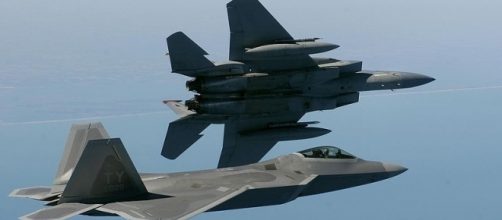When North Korea launched a missile that flew over Japan and landed in the Pacific Ocean near Hokkaido, it was an act of provocation. The United States retaliated by carrying out a mock bombing drill over the Korean peninsula along with its ally South Korea. The aircraft used were state-of-the-art stealth fighters and bombers that came from Guam and Japan.
In the opinion of an official of the South Korean air force, the joint exercise was to caution North Korea about its continued ballistic missile tests and its programs to develop nuclear weapons which is a matter of concern for the whole world and creates a fear of unwanted consequences.
A wayward or misdirected missile could land in an unintended location and catch people by surprise.
The US-South Korea exercise
CNN reports that the United States and South Korea carried out a joint exercise in the form of a mock bombing to simulate recreate a strike on enemy facilities. The location of the activity was in the eastern province of Gangwon, and the aircraft had flown in from the US bases in Guam and Japan.
US Pacific Command has confirmed it and has clarified that it was a response to the actions of North Korea to send a missile over Japan because it was a threat to an ally of the US.
In the recent past, North Korea had targeted Japan some times before the latest launch of a missile that flew over the country.
On earlier occasions, the missiles landed near the coast of Japan and, in the opinion of experts, with every launch, the parameters get tuned to convert it into a more formidable weapon.
Tension in the Korean peninsula
Whenever the United States joins up with South Korea to conduct the annual joint military exercise, North Korea gets in a panic and assumes that the enemies are planning an invasion.
China admits that the issue in the peninsula is very much real and has a direct effect on not just the South and the North but the whole region. In case the annual exercises are suspended or done on a smaller scale, it might influence Kim Jong Un to negotiate and arrive at a decision.
With every passing day, the situation in the peninsula is becoming complicated, and the US, South Korea, Japan and China must spare no effort to try and bring North Korea to the negotiating table.
Pyongyang has not shifted from its position even after the UN imposed sanctions on it. Therefore, the leaders must realize that threats will aggravate the situation and a confrontation with nuclear weapons would be a disaster.


